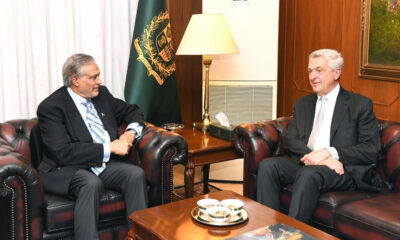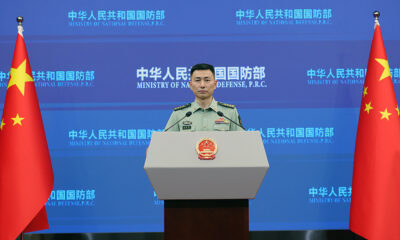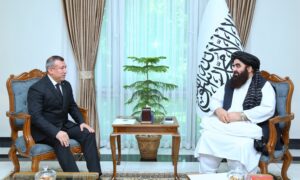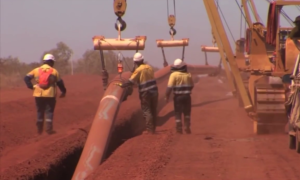Latest News
US left behind $7 billion of military gear after troops withdrew: Pentagon

A new Pentagon report has revealed that the US left $7 billion of military gear – including 78 aircraft, 12,000 Humvees and thousands of air-to-ground weapons – in Afghanistan after President Joe Biden’s chaotic 2021 withdrawal.
The US handed the equipment to the previous Afghan government over the course of 16 years, CNN reported.
According to the report, seen by CNN, the US Defense Department has no plans to return to Afghanistan to “retrieve or destroy” the equipment.
The US gave a total of $18.6 billion of equipment to the former Afghan National Defense and Security Forces (ANDSF) from 2005 to August 2021, according to the report. Of that total, equipment worth $7.12 billion remained in Afghanistan after the US withdrawal was completed on August 30, 2021.
It included aircraft, air-to-ground munitions, military vehicles, weapons, communications equipment and other materials, according to the DoD report.
Quoting the report, which was submitted to Congress, CNN stated: “Much of the remaining equipment” left in Afghanistan requires “specialized maintenance that DoD contractors previously provided” to Afghan forces “in the form of technical knowledge and support.”
The Department of Defense was required to submit a report to Congress “regarding the disposition of United States property, equipment and supplies provided to” Afghan forces that “were destroyed, taken out of” or “remain in Afghanistan.”
The report also says that five Mi-17 helicopters that had been in Afghanistan were officially transferred to Ukraine in 2022, though they were already in Ukraine for maintenance before the US left Afghanistan. The Department of Defense notified Congress of its intent to transfer the helicopters in January 2022, before Russia’s invasion of the country had begun, and Ukraine signed a letter of acceptance on March 11, 2022.
“These five helicopters were in Ukraine undergoing overhaul maintenance when the Afghan government collapsed, and have remained there since,” the report states.
Other materials previously procured for Afghanistan by the US but not sent to the country, has been given to Ukraine, including about 37,000 122mm howitzer rounds, the report states.
The US has also transferred ammunition, grenade cartridges, and thousands of high-explosive mortar rounds to Ukraine from material that was previously procured for Afghanistan, the report states.
According to the report, aircraft worth $923.3 million remained in Afghanistan after withdrawal.
The US left 78 aircraft procured for the government of Afghanistan at Hamid Karzai International Airport in Kabul before the end of the withdrawal. These aircraft were demilitarized and rendered inoperable before the US military left, the report states.
A total of 9,524 air-to-ground munitions, valued at $6.54 million, remained in Afghanistan at the conclusion of the US military withdrawal.
Over 40,000 of the total 96,000 military vehicles the US gave to Afghan forces remained in Afghanistan at the time of the US withdrawal, including 12,000 military Humvees, the report states.
“The operational condition of the remaining vehicles” in Afghanistan is “unknown,” the report states.
More than 300,000 of the total 427,300 weapons the US gave to Afghan forces remained in Afghanistan and “nearly all” of the communications equipment that the US gave to Afghan forces, including base-station, mobile, man-portable and hand-held commercial and military radio systems, and associated transmitters and encryption devices also remained in Afghanistan at the time of the withdrawal, the report states.
“Nearly all” night vision, surveillance, “biometric and positioning equipment” totaling nearly 42,000 pieces of specialized equipment remained in the country, and “nearly all,” of the explosive ordinance disposal and demining equipment, including 17,500 “pieces of explosive detection, electronic countermeasure, disposal and personal protective equipment” also remained in Afghanistan, according to the report.
Latest News
US Congress to hold meeting to review situation of Afghan women

The U.S. Congressional Human Rights Commission said in a statement it will hold a meeting on Tuesday this week to review the situation of Afghan women.
This meeting will be held on Tuesday next week with the presence of Rina Amiri, the US special representative for Afghan women’s affairs, Heather Barr, director of the Women’s Rights Division at Human Rights Watch and a number of other Afghan women.
Based on the statement of the commission, the participants of this meeting will review the human rights issues including the situation of women and girls in Afghanistan and provide recommendations for the action of the US Congress.
“Since August 2021, the situation of Afghan women and girls has significantly worsened. A growing list of severe restrictions imposed by the Taliban has severely reduced women’s ability to participate in public life,” the statement read.
This commission also pointed to the prohibition of women from work and denial of access to education, adding that the control over women’s private lives has increased.
Meanwhile, the Islamic Emirate has always rejected concerns about the violation of women’s rights in Afghanistan and emphasized that it is committed to respecting women’s rights in accordance with Islamic Sharia.
Latest News
Pakistan and Turkmenistan agree to fast-track gas pipeline project involving Afghanistan and India
The Turkmenistan-Afghanistan-Pakistan-India (TAPI) pipeline will originate from Galkynysh, the world’s second-biggest gas field, and end at the Indian city of Fazilka near the Pakistan border.
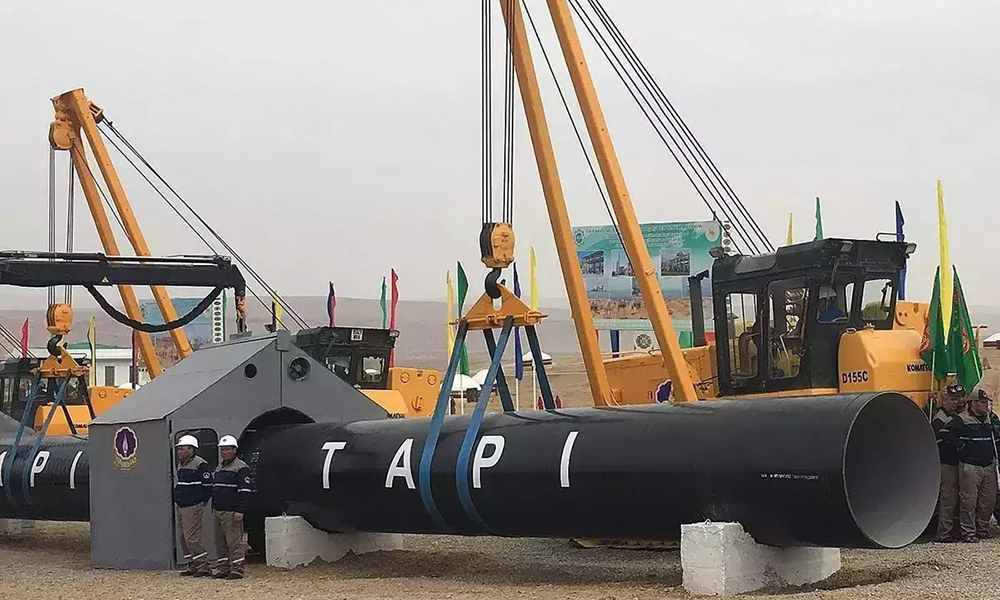
Pakistan and Turkmenistan agreed on Wednesday to fast-track a major pipeline project that will allow the Central Asian state to supply natural gas to Pakistan and India via Afghanistan, thereby enhancing economic activity across the region and benefiting all involved countries.
The understanding between the two states was reached during a meeting between Federal Minister for Petroleum Dr. Musadik Malik and Turkmenistan’s Foreign Affairs Rasit Meredow who arrived on a two-day visit to Islamabad on Tuesday.
The Turkmenistan-Afghanistan-Pakistan-India (TAPI) pipeline will originate from Galkynysh, the world’s second-biggest gas field, and end at the Indian city of Fazilka near the Pakistan border.
If the project is implemented, it will help Turkmenistan supply about 33 billion cubic meters (bcm) of natural gas each year along a route covering a distance of over 1,800 kilometers.
According to an official statement released by the Ministry of Energy’s Petroleum Division, Pakistan and Turkmenistan are working to “expedite” the pipeline project.
“TAPI pipeline project will lower energy costs, which can boost industrial growth, create jobs and foster economic development,” it quoted Pakistan’s petroleum minister as saying during the meeting. “Reliable and affordable energy supplies are vital for industrial sectors and overall economic stability.”
“This project, aimed at fostering economic integration and energy security, has witnessed substantial progress through collaborative efforts,” he continued, stressing the importance of continued engagement between the two countries.
Malik added Pakistan was fully committed to the project which was vital for regional energy cooperation and infrastructure development.
The visiting dignitary expressed appreciation for the warm welcome extended to his delegation by the Pakistani authorities.
“Together we will chalk out a roadmap for cooperation between both countries,” he added.
The meeting was also attended by the CEO of TAPI Pipeline Company Limited.
Other participants of the meeting emphasized the project’s strategic importance in enhancing regional connectivity, promoting economic growth and meeting the energy demands of participating nations.
The TAPI project was envisaged in the early 1990s and officially agreed upon in December 2010.
It has primarily been delayed due to security concerns, geopolitical tensions, funding challenges and bureaucratic hurdles.
Related Stories:
Acting FM discusses TAPI project with Turkmenistan’s envoy in Kabul
Latest News
Pakistan, UNHCR agree on lasting solutions for afghan refugees
The recent attacks and violent demonstrations by Afghani diaspora against Pakistan’s Diplomatic Missions in Frankfurt, London and Brussels also came under discussion, Radio Pakistan reported.
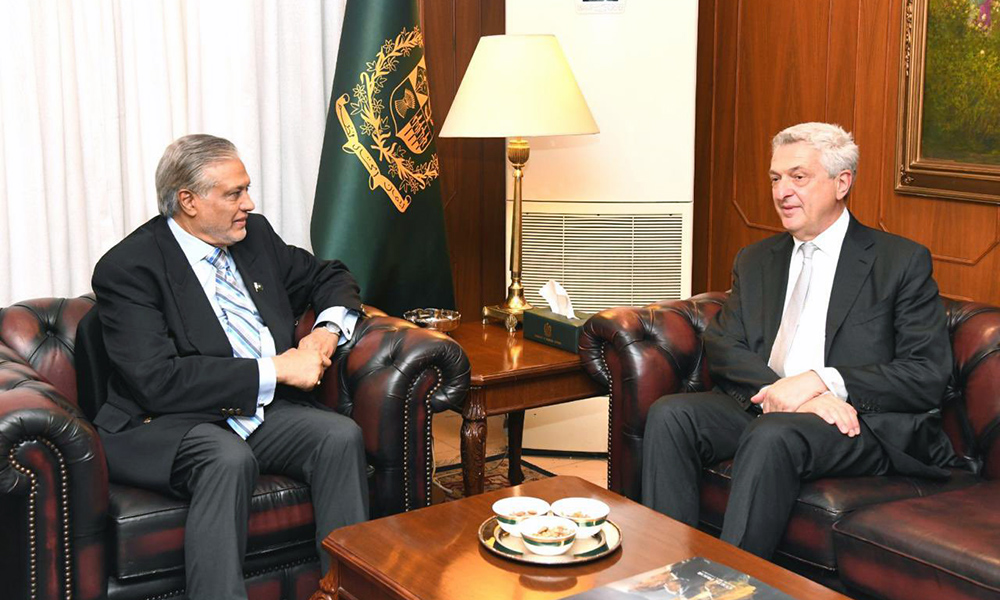
Pakistan’s Deputy Prime Minister and Foreign Minister Mohammad Ishaq Dar on Friday held a telephonic conversation with the United Nations High Commissioner for Refugees Filippo Grandi.
They discussed matters related to Pakistan-UNHCR cooperation.
The recent attacks and violent demonstrations by Afghani diaspora against Pakistan’s Diplomatic Missions in Frankfurt, London and Brussels also came under discussion, Radio Pakistan reported.
The High Commissioner appreciated Pakistan’s traditional hospitality towards Afghan refugees, in particular the recent decision by the Government of Pakistan to extend the validity of Proof of Registration Card.
Deputy Prime Minister and Foreign Minister and the High Commissioner agreed to continue to work together to advance Pakistan-UNHCR cooperation and find lasting solution to the issue of Afghan refugees, read the report.
This comes after the Ministry of Refugees and Repatriation of Afghanistan has announced that Pakistan has extended the POR (Proof of Registration) cards for Afghan refugees for another year.
On Thursday, July 25th, the Ministry reported on X that the Afghan Commissioner for Refugees in Islamabad confirmed the extension of POR cards for Afghan refugees residing in Pakistan. The new validity of these cards is from June 1, 2024, to June 30, 2025.
This extension comes amid rising tensions as the Pakistani government has been deporting over two thousand individuals daily. Despite the extension, Afghan refugees holding POR cards are increasingly concerned about the possibility of forced deportation to Afghanistan.
Related Stories:
Longer-term solutions needed for issue of Afghan refugees in Pakistan: UNHCR chief

UNHCR chief discusses Afghan refugee issue with Pakistan’s deputy PM
-

 Sport4 days ago
Sport4 days agoOlympics finally here; What you need to know
-

 Latest News5 days ago
Latest News5 days agoOCHA reports 110 die in landmine explosions in Afghanistan every month
-

 Regional5 days ago
Regional5 days agoChina braces for twin tropical cyclones after deadly flash floods
-

 World5 days ago
World5 days agoBiden ends failing reelection campaign, backs Harris as nominee
-

 Health4 days ago
Health4 days agoHealth partners provide services 589,205 people in Afghanistan in last month
-

 Latest News3 days ago
Latest News3 days agoAfghanistan’s Hajj ministry confirms death of 27 pilgrims in Mecca and Medina
-

 Business4 days ago
Business4 days agoConference on Islamic microfinance kicks off in Kabul
-

 Sport4 days ago
Sport4 days agoACB proposes ODI fixtures against top-tiered teams










